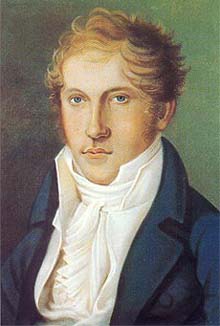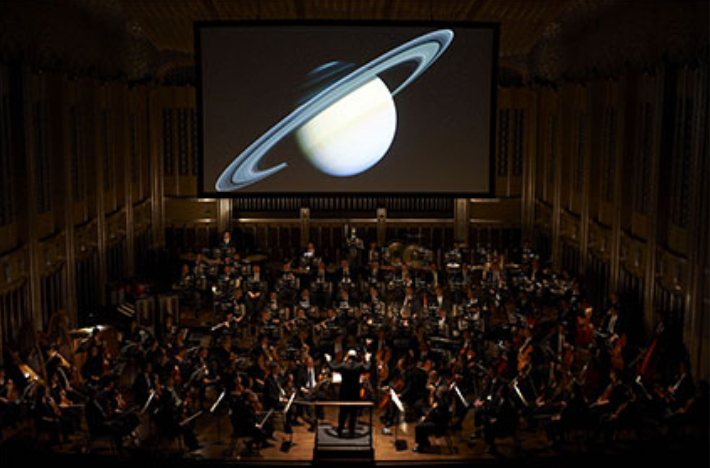by Daniel Hathaway
The Cleveland Orchestra: Out of this World. Daniel Reith leads “a fun-filled concert of intergalactic proportions” (7:30 at Severance Center), CIM’s Pocket Full of Operas features four 15-minute chamber operas composed by CIM composition students, performed by CIM Opera Theater and New Music Ensemble (7:30 in Mixon Hall), and Raphael Jiménez conducts Oberlin Chamber Orchestra in Rossini, Nielsen — with clarinetist Juan Pedro Espinosa Monteros — & Ginastera.
PROGRAM UPDATE:
The Cleveland Orchestra announced on Thursday that pianist Jean-Yves Thibaudet will replace Yuja Wang in its concerts on April 18, 19, and 20, to be led by guest conductor Klaus Mäkelä. Thibaudet will be featured in Gershwin’s Concerto in F. Milhaud’s Le Boeuf sur le toit will open the program. The second half, featuring Stravinsky’s The Rite of Spring, remains unchanged.
TODAY’S ALMANAC:
by Jarrett Hoffman

Despite playing and teaching the violin, and composing so frequently for it, Spohr is best-known today for his clarinet concertos. All four were written for Johann Simon Hermstedt, a court musician and the wind band director under the Duke of Schwarzburg-Sondershausen (to whom Hermstedt also taught the clarinet).
An interesting passage in Spohr’s autobiography shows the composer first praising Hermstedt, then seemingly also taking credit for the success of his friend and colleague. Spohr begins by referencing the Duke’s commissioning of the first concerto (played here by soloist Maria du Toit, the Cape Philharmonic, and conductor Arjan Tien).
To this proposal I gladly assented, as from the immense execution, together with the brilliancy of tone, and purity of intonation possessed by Hermstedt, I felt at full liberty to give the reins to my fancy. After, that with Hermstedt’s assistance I had made myself somewhat acquainted with the technics of the instrument, I went zealously to work, and completed it in a few weeks. Thus originated the Concerto…with which Hermstedt achieved so much success in his artistic tours, that it may be affirmed he is chiefly indebted to that for his fame.
Now hold on just a minute there, Mr. Spohr. As Pamela Weston explains in Clarinet Virtuosi of the Past, the Duke’s appreciation for Hermstedt was such that he might easily have commissioned some other composer — of equal renown — if things didn’t work out with Spohr.
So the moral of the story is: puff yourself up in your autobiography at the risk of getting zinged somewhere down the line.



